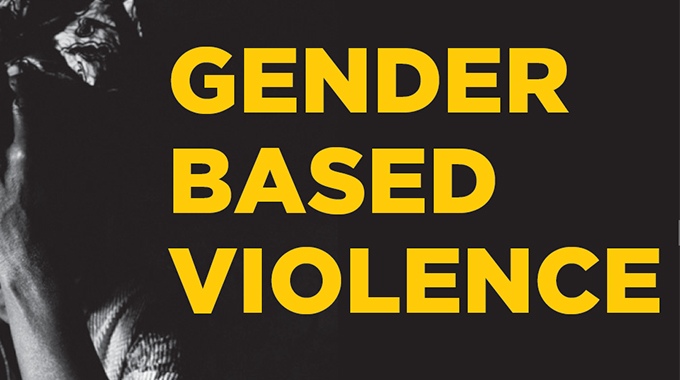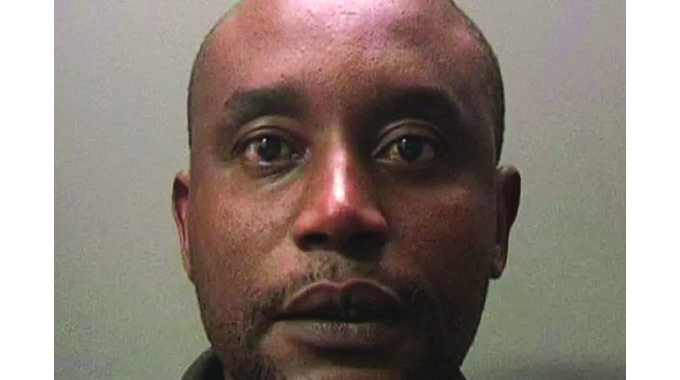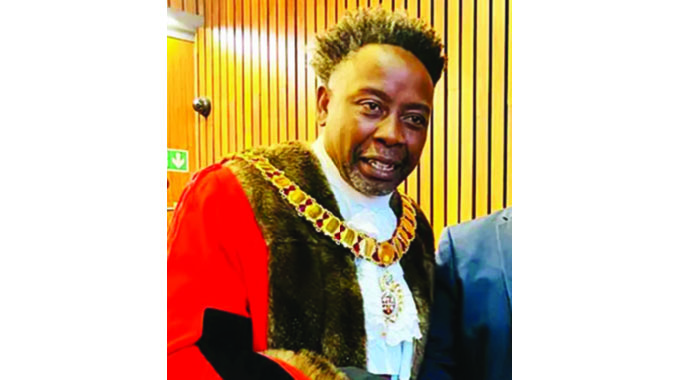Deep-rooted cultural, traditional beliefs in UK

Dr Masimba Mavaza
The death of Queen Elizabeth 11 and the ascending to power of King Charles 111 showed that tradition is key to both the monarch and the cUnited Kingdom at large.
It offered continuity, spectacle and a chance for structured national reflection – it was also the source of some of the most fascinating facts.
This shows that a government can only blossom if it has strong roots in its own culture and traditions.
What followed after the death of the Queen showed that we as Africans have let our tradition culture and customs down.
What we have done believing that it is the Western way of governance life and practice has been exposed as a fallacy. Africa has been failed by westernisation. It must cast off its subservience.
We have sunk so low in the belief of what we thought was Western culture which turned out to be Africa’s own undoing. The continent’s elites have to reject the notion that being ‘modern’ and ‘civilised’ means aping the west.
We have been burdened with the belief that our own culture is barbaric and satanic yet it is what we are and what it is. Borrowing from the words of my primary school teacher Mr Madziya from Mberi Primary School in Zengeza 2 would say “Africans are covered under a million blankets of paganism”. By this he meant and believed that our own culture was paganism.
It is actually true that one of the greatest ironies in the history of the collapse of any civilisation must be the initial interaction between Africans and Europeans. The superiority battle ended with the demise of African culture.
If only we had believed our great prophet His holiness Archbishop Chaminuka who initially saw the Europeans as “madmen with no knees and of strange appearance and ill-formed ideologies.”
Africans were stripped of their values even made to hand over their possessions for others to keep for them and call it banking. By the end of the 19th century, the “madman” had overturned their civilisation, and they had adopted his.
Sadly today even our children scornfully look down at our culture. The irony is especially relevant in these times when, given the relative failures of most former western colonies, there have been renewed calls for revisiting our culture and customs. In September,
The death of the Queen has shown that the British are deep in their custom. Each day brings out the deep routed custom,culture and way of life of the British. The following of the rituals was so pronounced.
The rituals where done both publicly and in private. One can imagine millions of people all just queueing for many hours just to file past a coffin. This was no body viewing. The Queen became the diplomat in chief.
The events in the UK showed how Africans have dived for a wrong ball. The foundations of African cultural bankruptcy are flawed, because like most people today, they have come to accept that the only measure of modernity is through the Western lens and abandoning your own.
This is the heart of the problem of Africa today. In trying to accept the Western system we see many churches being built and few industries done.
This has resulted in Africa being slowly emptied of its essence, and becoming a relic
Colonialism across most of Africa was so thorough – especially among the former British protectorates – that in its aftermath Africa was essentially hollowed out.
The civilisations of the peoples, their various cultures and traditions, their religions, political philosophies and institutions, were eroded or even destroyed.
This week the world was fascinated by the funeral of the Queen which was a platform to show the culture, custom and the way of life of the British people. The funeral opened up the monarch and exposed that they are beyond just a ceremonial entity.
Obviously after the burial of the Queen there will be coronation of the king. The coronation is a ceremony (specifically, initiation rite) in which King Charles III formally invested with regalia and crowned at Westminster Abbey.
It corresponds to the coronations that formerly took place in other European monarchies, all of which have abandoned coronations in favour of inauguration or enthronement ceremonies.
A coronation is a symbolic formality and does not signify the official beginning of the monarch’s reign; de jure and de facto his or her reign commences from the moment the preceding monarch dies, maintaining the legal continuity of the monarchy. But the coronation will be done anyway. This shows the richness of the custom.
The coronation usually takes place several months after the death of the previous monarch, as it is considered a joyous occasion that would be inappropriate while mourning continues. This interval also gives the planners enough time to complete the elaborate arrangements required. For example, Queen Elizabeth II was crowned on 2 June 1953, having ascended the throne on 6 February 1952; the date of her coronation was announced almost a year in advance, and preparations inside the abbey took five months.
The ceremony is performed by the archbishop of Canterbury, the most senior cleric in the Church of England, of which the monarch is supreme governor. Other clergy and members of the nobility also have roles; most participants in the ceremony are required to wear ceremonial uniforms or robes and coronets. Many senior government officials and guests attend, including representatives of other countries.
The essential elements of the coronation have remained largely unchanged for the past thousand years. The sovereign is first presented to, and acclaimed by, the people. He or she then makes an oath to uphold the law and the church. Following that, the monarch is anointed with holy oil, invested with regalia, and crowned, before receiving the homage of his or her subjects.
The wife of the king is then anointed and crowned as the queen consort. The service ends with a closing procession, and since the 20th century, it has been traditional for the royal family to appear later on the balcony of Buckingham Palace, before attending a banquet there. This is a ritual which defines the British and defines their future. The customs of thousands of years remain and are always adhered to.
Our own African brothers look down upon their own culture.
We have noticed that while it is a vital ritual among the world’s monarchies, coronations have changed over time for a variety of socio-political and religious factors; most modern monarchies have dispensed with them altogether, preferring simpler ceremonies to mark a monarch’s accession to the throne.
In the past, concepts of royalty, coronation and deity were often inexorably linked. In some ancient cultures, rulers were considered to be divine or partially divine: the Egyptian pharaoh was believed to be the son of Ra, the sun god, while in Japan, the emperor was believed to be a descendant of Amaterasu, the sun goddess.
Rome promulgated the practice of emperor worship; in Medieval Europe, monarchs claimed to have a divine right to rule (analogous to the mandate of heaven in dynastic China). Coronations were once a direct visual expression of these alleged connections, but recent centuries have seen the lessening of such beliefs.
Coronations are still observed in the United Kingdom, Tonga, and several Asian and African countries. In Europe, most monarchs are required to take a simple oath in the presence of the country’s legislature.
Besides a coronation, a monarch’s accession may be marked in many ways: some nations may retain a religious dimension to their accession rituals while others have adopted simpler inauguration ceremonies, or even no ceremony at all.
While it is shrouded in silence, the British enshrined the monarch in the religion. The Queen or the king remains the head of the church, making the throne the most holy on the church. Such acts symbolise the granting of divine favour to the monarch within the relevant spiritual-religious paradigm of the country.
While Charles automatically became king the moment his mother Queen Elizabeth II died, the coronation will not come until later as this deeply symbolic ceremony takes time to organise. Traditional African religions have faced persecution from Christians and Muslims. Foloowers of these religions have been forcefully converted to Islam and Christianity, demonised and marginalised.
The atrocities include killings, waging war, destroying of sacred places, and other atrocities. Now Africa has become a deadly weapon against itself and against its culture.
It is in Africa where they call their ancestors evil. Respecting one’s ancestor is called satanism. This has destroyed Africa while Britain dives in its culture to showcase how rich it is in customs and culture and traditions.
The traditional beliefs and practices of African people are highly diverse beliefs that include various ethnic religions. Generally, these traditions are oral rather than scriptural and passed down from one generation to another through folk tales, songs and festivals, include belief in an amount of higher and lower gods, sometimes including a supreme creator or force, belief in spirits, veneration of the dead, use of magic and traditional African medicine. Most religions can be described as animistic with various polytheistic and pantheistic aspects. The role of humanity is generally seen as one of harmonising nature with the supernatural.
The death of the Queen has shown that a country is as strong as its adherence to its culture ethics and culture. Today most of the nations in Africa should not even be called African nations, but western African nations. The language, political ideology, socio-economic structures, education, and everything that makes up a nation, even down to popular culture, do not originate from within these countries. African nations have a total dependency on foreign political philosophies and ideas, and their shifts and movements.
It is the feeblest position a state and its people can be in, because it is a position of chronic subservience. It also means that whatever becomes normalised in the west will eventually be adopted in, Africa. This is the curse we willingly accept.
This has resulted in Africa being slowly emptied of its essence, and becoming a relic, no different in substance from a statue or a museum.
Celebrations of Africa on the international scene mostly involve dancing, music, traditional fashion and other cultural artefacts – hardly ever showcasing African-originated economic ideas, social ideologies or intellectual theories. It is not that these do not exist, but the world has successfully convinced everyone – including Africans themselves – that everything African is inferior.
Central to this psychology is the proliferation of Africans being educated in the west. This trend has resulted in the rise of an army of western-influenced elites who continue the colonialism of their own people.










Comments